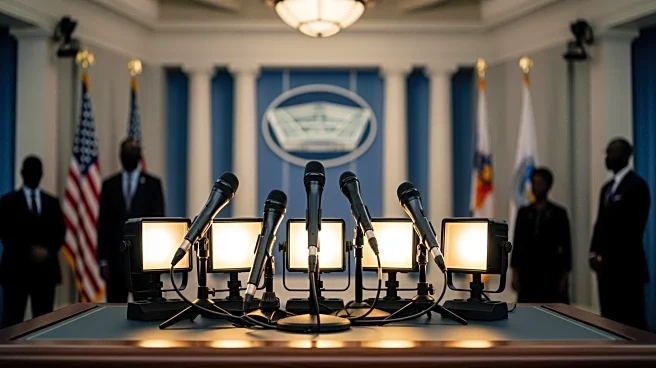What's Happening?
Defense Secretary Pete Hegseth has introduced new media restrictions at the Pentagon, advised by his personal lawyer Tim Parlatore. The policy requires journalists to sign a document acknowledging that
requesting unapproved information is akin to soliciting government employees to break the law. Those who refuse must leave the Pentagon. The Washington Post and other media outlets have declined to sign, citing First Amendment concerns. Parlatore, who joined Hegseth's staff in March, has been influential in shaping these restrictions, which have raised internal scrutiny due to his dual role as a military officer and legal adviser.
Why It's Important?
The new media restrictions have significant implications for press freedom and transparency within the U.S. government. Critics argue that the policy infringes on First Amendment rights and could limit accountability by restricting journalists' access to information. The Pentagon Press Association has labeled the policy as intimidation, urging reconsideration. The restrictions could lead to legal challenges, potentially affecting how media interacts with government entities and reports on defense matters. This development highlights ongoing tensions between government officials and the press regarding information security and public access.
What's Next?
Pentagon officials anticipate potential legal challenges from media outlets against the new policy. The outcome of such challenges could set precedents for media access and government transparency. The Defense Department's Office of Inspector General is reviewing how sensitive information has been handled, which may influence future policy adjustments. Stakeholders, including media organizations and civil rights groups, are likely to continue advocating for press freedoms and challenging policies perceived as restrictive.
Beyond the Headlines
The introduction of these media restrictions raises ethical questions about the balance between national security and press freedom. It underscores the potential conflicts of interest when legal advisers hold dual roles in government and private practice. The policy's focus on 'controlled unclassified information' suggests a broader trend towards increased information control, which could impact public discourse and the role of journalism in democratic societies.









